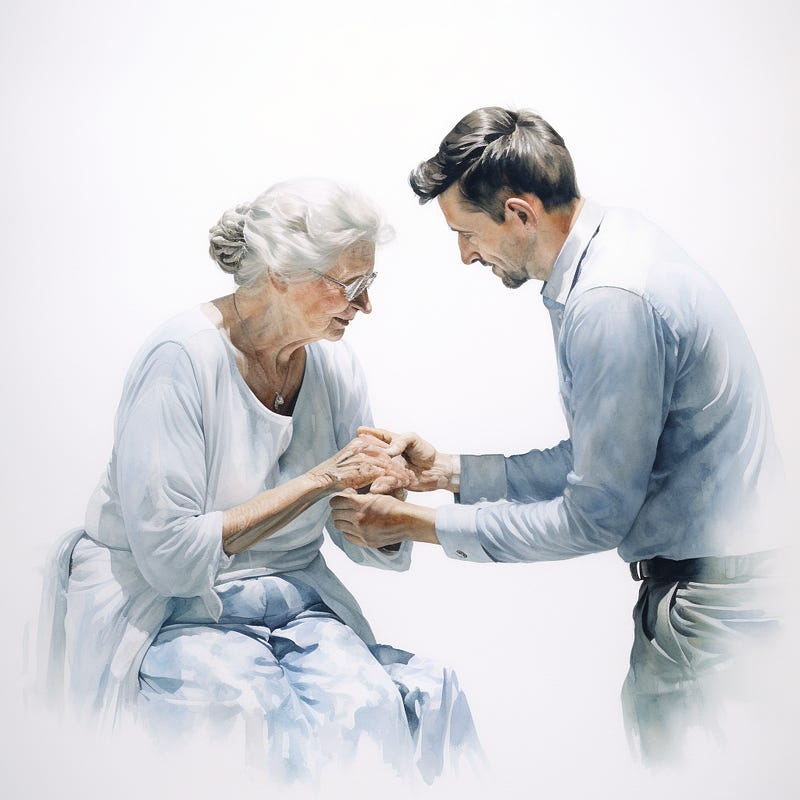Whether we like it or not, there come moments in everyone’s life when we need help. It could be emotional support, financial assistance, borrowed tools, etc. Whatever we might need at the moment, which we can’t provide for ourselves or our family, can push many of us into a deep pit. Why is that?
Firstly, it’s because in today’s Western society, isolated groups of people try to grapple with life’s challenges instead of organizing in larger communities. We no longer live in tribes where a whole team of adults, parents, aunts, uncles, grandparents raised the young ones, helped build houses, or provided food if the immediate family ran out. We live in small families, often consisting of three, four, or five members. Yet, in such a family, there are usually only two adults, and life often exceeds the competencies of even two people. Anyone who denies this certainly needs some serious self-awareness work.
Think about how often we’ve asked grandparents to look after the kids, the dog, or the cat. Or how many times we borrowed a drill or a car from friends. Everyone faces challenges in different areas, but one thing’s for sure: we all have them.
The problem arises when, instead of accepting these episodes as natural, we try to hide them because society implies they are evidence of our weakness or incompetence. If you lack something, you’re seen as weak. If you need help, you’re deemed unfit.
When seeking help, we often encounter one of two scenarios
The first scenario is when we feel that someone assists us selflessly, treating us as an equal. In these moments, we form a genuine bond with the other person, enveloped by feelings of gratitude and relief. Being acknowledged in our struggles and subsequently accepted and aided represents a genuine, warm human connection. Such experiences are incredibly precious, yet sadly, they are also rare.
On the other hand, a more frequent scenario involves feeling humiliated and stripped of our dignity after receiving help. In these instances, instead of experiencing genuine acceptance and a true bond, what transpires is more of a transaction. In this situation, the other party often exploits their upper hand, leveraging our vulnerability. Forced to accept the terms of this unequal exchange, our response shifts from gratitude to resentment. Sounds familiar, doesn’t it?
Dr. Brené Brown crystallized the explanation for this difference:
“If you cannot ask for help without self-judgment, then you cannot offer help without judging those you are assisting.”
Meaning, when we felt exploited, we sought help from someone who judged us. From whom we cannot receive “free” aid but can only strike a deal:
‘I’ll give you what you need (time, money, food, attention, etc.), and in return, you’ll assume a role: you become weak and worthless. This will make me feel valuable, and if possible, I’ll ensure everyone knows how generous and strong I am, and how incapable and small you are.’
In order to foster genuine, meaningful human relationships rather than mere transactions, consider the following steps:
When in need of assistance, refrain from turning to those who treat help as a commodity, even if they are family members.
Reflect upon our own perceptions of those seeking assistance. Do we pass judgment? Do we label them as weak or incompetent? Or do we recognize that life is complex, and everyone, at some point, requires support?
When we’re in a position to extend help, it’s vital to bolster our self-worth. This ensures we don’t feel compelled to validate our worth through dubious “agreements” or by belittling others.
By adhering to these principles, we can both offer and seek help in a genuine, non-judgmental manner. The added bonus is the establishment of truly valuable and unique human connections along the way!
– Eszter
Related Article
Home | Notes | Articles | Eszter’s Magic | Literary Bonbons | Short Stories and Guides | Beyond the Book | EWE Issues | Archive | About





